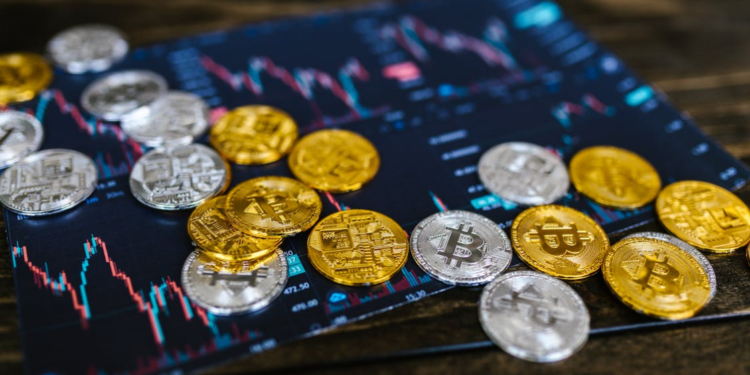The Central Bank of Nigeria’s (CBN) restriction on crypto users in Nigeria has paved the way for manipulators, according to experts and stakeholders in the blockchain sector.
They attributed the current developments in crypto in Nigeria to the policies and decisions made by theCBN, which appear to create a gap between the regulator and the market.
According to them, the position taken by the banking regulator may lead to a multitude of challenges, potentially enabling malicious individuals to take advantage of the situation.
The ban, according to them, might enable the perpetrators who engaged in currency manipulation via cryptocurrency trading to cause even greater harm to the economy.
The activities of the bad actors are believed to be denting the image of several legitimate players in the industry.
The actions of the malicious individuals are thought to be tarnishing the reputation of numerous reputable entities within the sector.
This comes when concerns are growing over the government’s intentions to prohibit peer-to-peer (P2P) cryptocurrency trading within the nation. While certain experts argue that banning P2P may prove impractical since individuals can clandestinely exchange funds, industry participants worry that a complete ban would negatively impact various platforms designed to facilitate lawful transactions.
Speaking on the current developments in the industry, the Co-founder of Convexity, a blockchain solutions company, Adedeji Owonibi, said the CBN under the former Governor, Godwin Emefiele, created the P2P market when he shut out banks from crypto transactions.
The former CBN Governor sent everybody away to P2P because people could use the banking rates. P2P is a creation of the central bank and directly so because as a matter of fact, if they had not stopped it, people would have been trading within different cryptocurrency exchanges that are interacting with the banking system. This opened the doors for all kinds of people in the P2P market.
Now, we have a lot of bad actors that are giving everybody a bad name. The industry players operating legitimately will need to expose the bad actors and let the government know them, Owonibi said.
CBN’s Failure To Regulate
Owonibi’s thoughts aligned with that of the President of Stakeholders in Blockchain Association of Nigeria (SIBAN), Obinna Iwuno, who argued that if the CBN had regulated the industry, there would have been no rise in P2P because everybody would have been trading through regulated agencies and exchanges.
He believes that if P2P is blamed for sabotaging the economy, the industry could face further challenges unless the government steps in to regulate it.
What we are seeing currently is not the action of our industry, but because certain things have been made to look as though this is what our industry represents
Accusing fingers are being pointed at us when we are not guilty and it is one that we have to deal with because if we don’t deal with it, it has the possibility of spreading even further than it is now and hurting the industry more than it is already , he said
P2P and KYC
Chuta Chimezie, the founder of Blockchain Nigeria User Group, highlights the primary concern within the blockchain industry as the lack of attention from CBN towards the activities of its participants. He asserts that the exchanges facilitating peer-to-peer transactions are implementing sufficient KYC measures, which could assist the regulator in effectively overseeing the industry.
Every exchange that I know that does p2p transaction does 100% KYC and they comply maximally to all the standards that the financial reporting standards outline for them to operate. But the problem here is that the industry is still like a ghost to the central bank.
So, because they are not interfacing with that industry, they don’t even know the effort the people are putting in place. How will the CBN know if they don’t allow them to come under their regulation these guys are dealing with financial services. They are dealing with financial instruments, so bring them into the regulatory environment, make them your friends, make them part of the financial system, and it will be easy for you to know who is doing what; he said.
Putting A Stop To P2P
Chimezie emphasized that the P2P market in Nigeria has evolved into an extension of the forex black market. He stated that implementing a complete ban on crypto P2P trading would not be beneficial for the country as individuals would inevitably seek alternative methods using technology.
But he agreed that there has to be an intervention from the government to save the nation’s currency.
First of all, we are all Nigerians before being traders and the spirit of patriotism will drive us to agree that no responsible government will fold its hands and allow its national currency to be determined by the agreed level of traders in any platform
So, we agree that something needs to be done about that. We agree that there should be regulation and everyone who is involved in issuing, transmitting, or driving any aspect of digital assets should come into a regulatory environment
But it doesn’t have to be an outright ban because we’re dealing with a different kind of asset class because when you outrightly ban it, people will find a way to transact it and there’s nothing you can do about it,” he said.
Strollback
The classification of cryptocurrency trading as a national security concern by Nigeria’s National Security Adviser (NSA) prompted the Central Bank of Nigeria (CBN) to issue directives to four fintech startups, namely Opay, Moniepoint, Paga, and Palmpay. These directives require the mentioned companies to block the accounts of customers involved in cryptocurrency transactions and report such activities to law enforcement agencies.
Earlier in February this year, Binance, a cryptocurrency trading platform, was forced to deactivate its peer-to-peer function for users in Nigeria due to scrutiny from the Nigerian government regarding accusations of currency manipulation and money laundering.
On Monday, the Nigerian Securities and Exchange Commission (SEC) held a virtual meeting with the Blockchain Industry Coordinating Committee of Nigeria (BICCoN) to discuss a new cryptocurrency regulation proposal that seeks to eliminate the naira as a currency pair on cryptocurrency peer-to-peer platforms.
The Acting Director General of the SEC, Dr. Emomotimi Agama, who made the call, emphasized the need to clean up the virtual assets space from illegal trading activities and safeguard the integrity of the Nigerian capital market. Agama noted that the recent surge in peer-to-peer (P2P) crypto trading has reportedly impacted the Naira’s exchange rate, prompting the SEC to consider delisting the Naira from P2P platforms to curb market manipulation.










